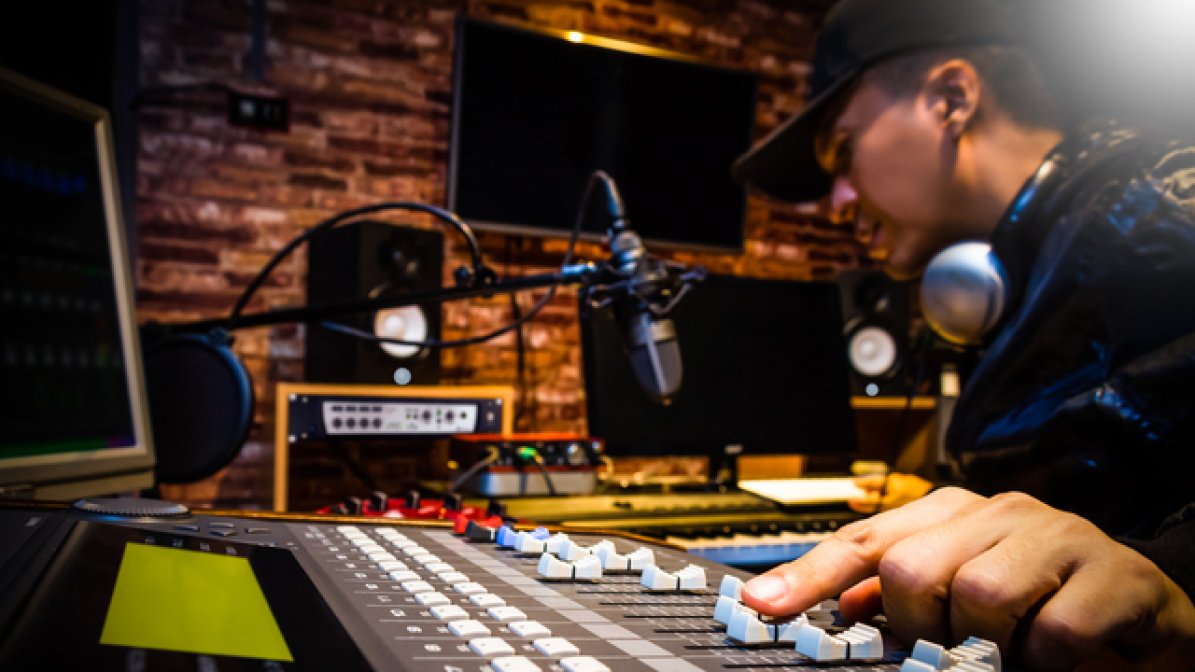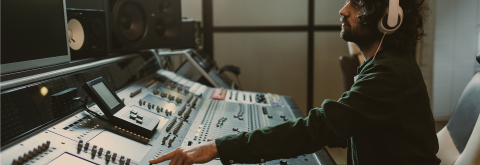If you choose music you’ll learn about theory, composition, and performance, unlocking a world of artistic expression and technical skill.
Beyond the joy of creating and appreciating music, you’ll develop a range of skills highly valued in diverse career paths. Whether you want to become a professional musician, composer, or music educator, or to explore careers in music production, technology, or business, a music education equips you with creativity, discipline, and adaptability. And in our modern world where multimedia and technology meet with traditional forms, it could also open doors to exciting careers in film scoring, sound engineering, or interactive media.
The impact you could make
- Contribute to the world of entertainment, providing joy, inspiration, and a sense of escapism through performances, recordings, and live shows.
- Engage with local communities by organising concerts, workshops, and outreach programmes that bring people together.
- Contribute to the preservation of cultural heritage, ensuring that unique musical traditions are passed down to future generations.
What you could study
- Composition
- Creative software skills
- Folk music studies
- Media composition skills
- Music industry studies
- Musical techniques
- Performance studies
- Studio recording technique
Studying music production at Leeds Arts University
Check out the BA (Hons) Music Production course at Leeds Arts University, the only specialist arts university in the North of England.
Example module
Example assignment
Subjects it's useful to have studied first
Some music courses or apprenticeships will have requirements for previous qualifications in certain subjects. Entry requirements vary, so always check with the provider.
Five GCSEs at grade C/4 or above
Music
Hard skills you'll develop
- Music technologies including virtual instruments
- Technical aspects of playing one or more musical instruments
- Learn music theory, including harmony, melody, rhythm, and form
- Music production, including recording, mixing, and mastering techniques
Soft skills you'll develop
- Reproduce musical elements by ear
- Read and perform music on sight
- Adaptability to different playing or composing contexts
- Performance skills
71% of students
Careers: Where it can take you
Find out more about your career prospects from studying music. The following information is based on a typical musician role.
Available jobs
Average salary
Career options
Art and performance

What is a… music software developer?
Visionary souls, music software developers have a passion for both technology and music, inspiring them to create innovative digital tools that transform the landscape of music creation. Often with a background in computer science and a deep understanding of musical theory, they develop cutting-edge software applications that empower musicians, producers, and composers. Whether crafting intuitive Digital Audio Workstations (DAWs), virtual instruments, or groundbreaking music production apps, their work seamlessly merges technical precision with artistic expression.
Find your ideal career
Take our careers quiz to find your ideal job matched to your personality type.Getting in: Entry requirements
Find out more about what you'll need to study music at university or as an apprenticeship.
Average requirements for undergraduate degrees
Entry requirements differ between university and course, but this should give you a guide to what is usually expected from music applicants.
A levels
Scottish Highers
Audition and interview
Other subjects you may be interested in
Explore further
Go deeper into topics around music with the following:-
1
Wired4Music
Music events, courses, jobs and opportunities for people aged 16-25 in London. -
2
Find out more about careers and courses in music
Check out these websites:
-
3
Song Exploder
This Netflix series is based on the popular podcast which digs deep into songwriters’ creative process.
Application advice
Whether it's personal statement tips or what to write in a cover letter for an application, our advice will help you get ahead in your music journey.Skills, experiences, and interests to mention
- Detail your musical background, including any instruments you play, genres you’re interested in, and any formal training or lessons you’ve taken.
- Have you got performance experience? That could be in solo performances, ensemble settings, or taking part in musical events.
- Share the musicians, composers, or genres that have inspired you.
- Talk about any impactful concerts, performances, or musical events you’ve attended, and reflect on how these experiences have influenced your musical perspective.
- If you’ve taken on leadership roles within musical groups or projects, that will show your ability to lead, organise, and collaborate with others.














